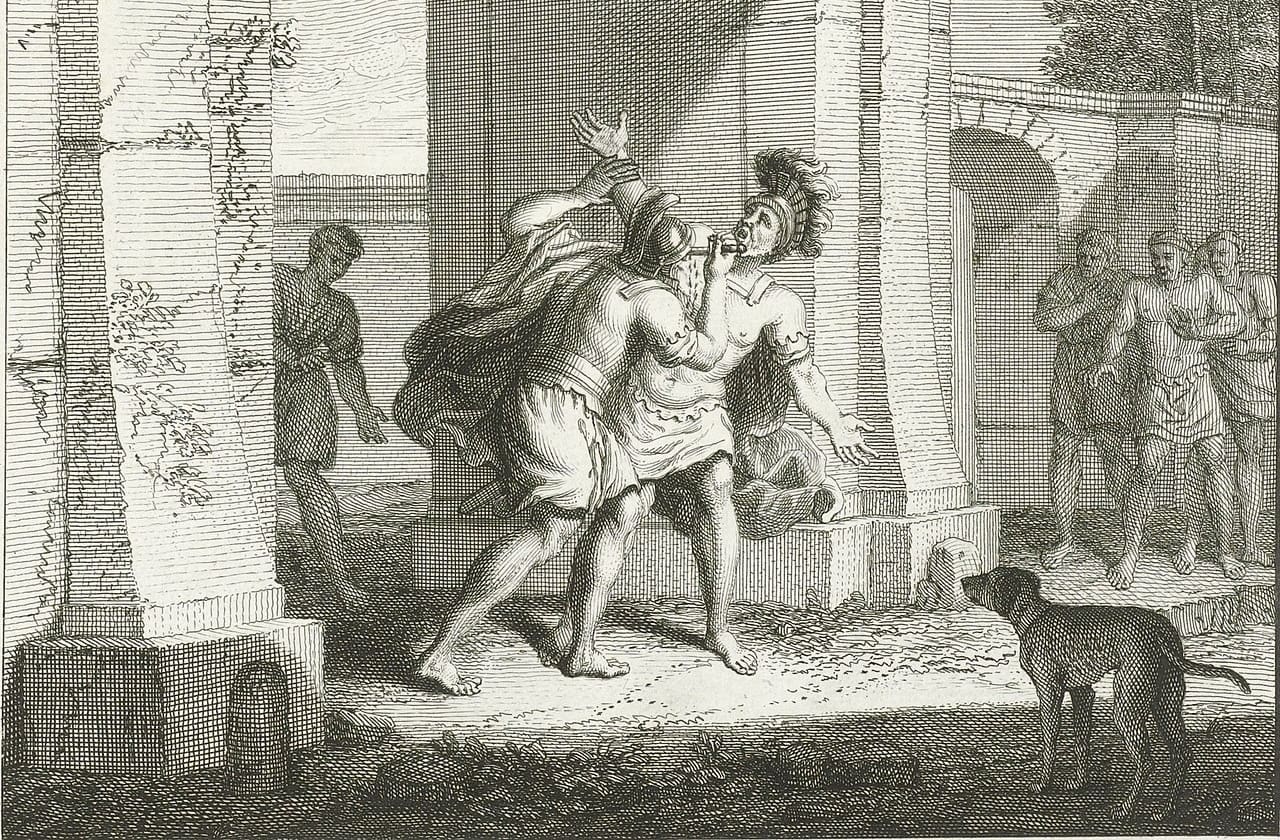Joab was the army commander of the famous King David. The Bible dedicates quite a bit of space to recording Joab’s life, which taken all together is impressive, brutal, and tragic. The Bible introduces us to Joab and his life in 2 Samuel 2:13 during the early Israelite monarchy, when David was the king of the tribe of Judah. David ruled from the city of Hebron that boasted the grave of Abraham, Isaac, and Jacob, patriarchs of the entire nation (2 Sam. 2:1-4). Backing and enforcing David’s rule were the many warriors he had acquired during his years fighting for King Saul, and then as a man on the run from King Saul. Head of this tried-and-true fighting force of David was his nephew Joab, son of his sister Zeruiah. Since David was the youngest of seven brothers, and had at least two sisters, Joab may have been older, the same age, or younger than his uncle David (1 Chron. 2:13-17). And he wasn’t the only nephew of David to become a warrior: Joab’s brothers Abishai and Asahel had also risen to fame in David’s military. Abishai as a top commander (1 Chron. 11:20-21), and Asahel as a skilled warrior (1 Chron. 11:26).
The Bible tells us that Joab’s climb to commander in chief was accomplished by leading the successful assault on Jerusalem, claiming it for David’s new capital (2 Sam. 5; 1 Chron. 11). Despite his fame, Joab did make some questionable choices, three of which eventually cost him his life.
“So Joab and Abishai his brother killed Abner, because he had put their brother Asahel to death in the battle at Gibeon.”
2 Samuel 3:30
First, a vengeance killing. When David was at war with King Saul’s son and his military commander Abner––who seems to have been pulling the strings––Abner killed Joab’s brother Asahel (who may have been unarmed and trying to shame Abner). Later, after David had made a deal with Abner to reunite the kingdom under David’s rule, Joab killed Abner to avenge the blood of his brother (2 Sam. 3).
Another bold choice came in a war against David’s own son Absalom. Though Absalom was out for David’s blood, the king had commanded to take Absalom alive. In battle, Joab ignored this order and killed Absalom (2 Sam. 18).
His third brutal act was, again, likely motivated by a desire to protect David’s rule. The man who had led Absalom’s civil war against David was named Amasa (Joab and Absalom’s cousin, nephew to David through his other sister Abigail). In a probable attempt to unite the country, David had promised to give him Joab’s job: Commander of Israel’s army. As soon as Joab had the chance, he killed him (2 Sam. 20).
David either didn’t really mind the action or was afraid of Joab’s popularity because he gave Joab his job back. It wasn’t until the very end of his life when David would tell Solomon to find a way to kill Joab in return. For all accounts and purposes, Joab seems to have been a man of deep loyalty to his uncle King David, and to the Lord, as he had resisted some of David’s overtly, ungodly decisions. This loyalty paired with self-preservation made for an interesting life. As do Joab’s last actions: He ran to the altar of God for sanctuary. When Solomon ordered him executed anyways, Joab refused to leave, preferring to be executed in the presence of his ultimate judge, the God of Israel (1 Kings 2).

Corie Bobechko is a daily co-host, speaker, and writer of Bible Discovery. She also hosts a YouTube channel that shows how history and archaeology prove the Bible. Her heart for seekers and skeptics has led her to seek truth and share it with others. Corie also has a Bachelor of Theology from Canada Christian College.






